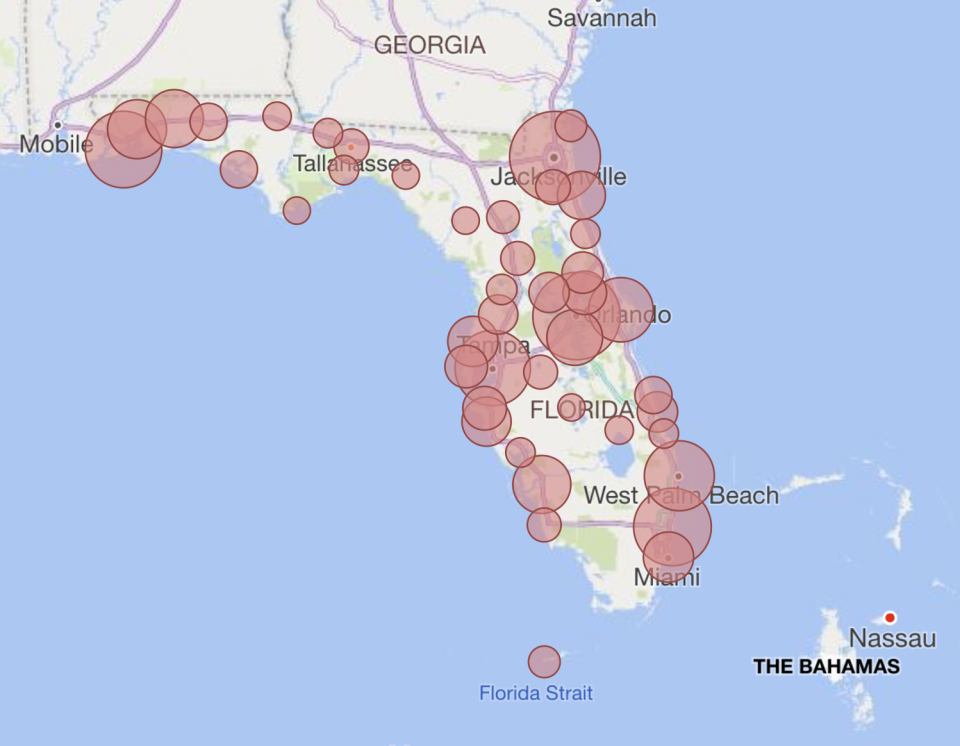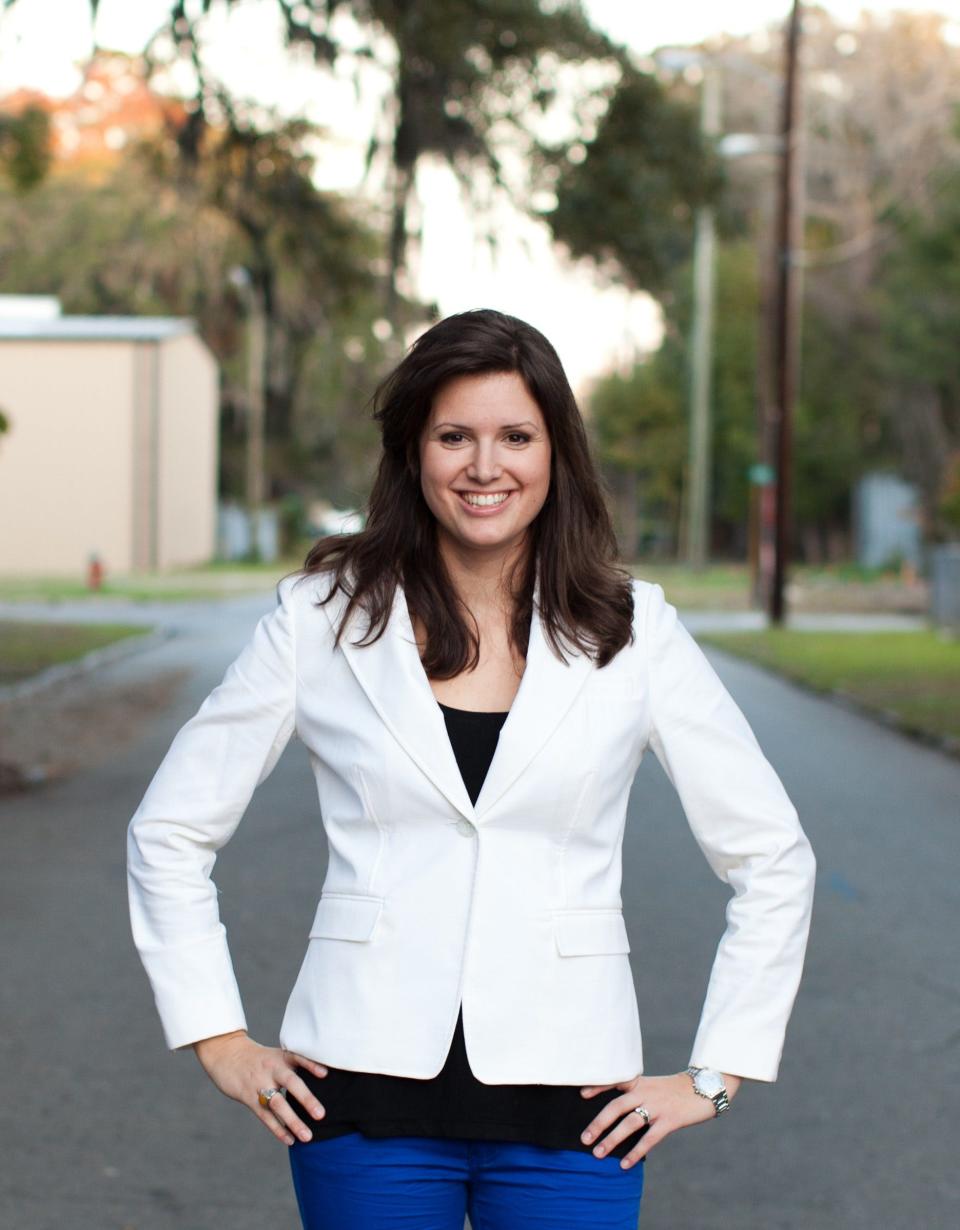Thea Ramirez: New solutions, grassroots action for ending the foster care-to-prison pipeline
Aging out of foster care, Joseph hoped to find an adoptive family before turning 18. He found prison instead.
Joseph was like many teens his age in foster care. On the verge of aging out of the system, the 17-year-old Broward County native faced diminishing hopes of finding a family to adopt him before his 18th birthday. Social workers struggled to find him a suitable adoptive family due to his age and his previous stints in juvenile detention. Bouncing from foster family to foster family, he was stuck in a vicious circle of uncertainty.
'A broken system': For tens of thousands of children in the U.S., their ‘forever family’ doesn’t last long
'Significant need': United Way awards $9 million in nonprofit grants to help struggling families
As his 18th birthday approached without a permanent family lined up, he began to gravitate toward negative influences to fill the void left by the loss of his mother and absent father.
Later, Haley Hunt, founder of The VERB Kind, a nonprofit organization that pairs youth in juvenile correctional facilities with volunteer mentors, received a call about Joseph. He had landed in police custody after carjacking an Uber driver and taking off on a five-hour joyride. The news dismayed Hunt — who saw Joseph make incredible progress after connecting him with a local pastor and finding him a job.
Sadly, he now faces four years in prison for grand theft auto and, like Haley, wonders how his life would have been different had he found the right adoptive family.
Joseph’s tragic story is not an anomaly. The foster care system is often cited as a pipeline to prison as children bounce between foster homes and struggle to find long-term adult guardians (a 2018 study found 90% of foster youth with five or more foster placements will enter the justice system).
While various youth mentorship programs across the U.S. provide an excellent resource for at-risk children, they can’t replace loving parents — a fixture in daily life and someone to share meals with and provide love, care and, when needed, discipline.

Nearly 20,000 children age out of foster care every year without finding a family — enough to fill Jacksonville’s VyStar Veterans Memorial Arena. After aging out, they lose access to the child welfare system's financial, educational and social resources and enter young adulthood, facing disproportionate unemployment rates, incarceration, substance abuse and mental illness.
In addition, these children are likelier to fall victim to human trafficking or join gangs.
The failure to find families for youth in foster care is not due to a shortage of families looking for children to adopt — more than 33% of Americans have considered adoption and hundreds of thousands of families follow through on that consideration each year. Instead, the issue remains one of connection and using tools that can link children with the most compatible families.
As a result, too many children transition between foster families because of a lack of compatibility with their adoptive family. They become the “forgotten children” hidden in the larger data set of children with a goal of adoption who have families already identified to adopt them. And, after aging out, they often face the world’s challenges alone.
This is tragic, but it is a problem we can solve by taking grassroots action and applying modern solutions. Many communities across several states have already begun leveraging new technology designed to help child placement workers identify families across a vast database of prospective adopters to match on markers of compatibility with children waiting to be adopted.
At long last: After years of extreme abuse, an adopted teen finds love — and a mission
Letters: Nation should turn to Abraham Lincoln for lessons on guidance in divisive times
Child and family attributes derived from the scientific literature present an advance on current methodologies that have for more than 150 years relied heavily on the preferences and desires of prospective adopters only.
Developed by former senior researchers at eHarmony, algorithms like those used in Family-Match (created by the nonprofit Adoption-Share) help shift the workers' focus on finding families with attributes that best align with the child, thereby promoting child and family pairings that have the greatest likelihood of long-term success. This pairing of innovation with collective grassroots action helps change the lives of so many people.
It’s just one example of what we can do at the individual, local and national levels to break the foster care-to-prison pipeline and prevent the foster children in our communities from meeting the same tragic fate as Joseph.
November is National Adoption Month and a great time to reflect on what we can do to protect this precious population of children who have a goal of adoption, but no family identified to adopt them. The estimated 35,000 children in this demographic need solutions to keep them from meeting the same tragic fate as Joseph.
So, this month, as we celebrate the many families who have adopted children from the foster care system, let’s remember the children who remain waiting without any family identified to adopt them.
Let’s urge our policymakers and child welfare leaders to protect these children who have no other alternative except aging out of care, becoming closer to prison and homelessness or becoming victims of human trafficking. Let’s learn about the people organizations and technology driving innovation on this issue, discover new ways to tackle this systemic problem and call for our elected officials to step up and provide support.
By taking the initiative, we as a society have the power to effect change and provide children in foster care with the solid foundation to build a fruitful life and establish a new pipeline that flows out of foster care and into loving homes and brighter futures that all children deserve.

Thea Ramirez is the founder and CEO of Adoption-Share, a nonprofit organization designed to bring efficiency and transparency to the adoption process. They are headquartered in Brunswick, Ga.
*NOTE: The name “Joseph” is used as a pseudonym to protect the confidentiality of the individual child’s story.
This guest column is the opinion of the author and does not necessarily represent the views of the Times-Union. We welcome a diversity of opinions.
This article originally appeared on Florida Times-Union: New solutions for ending the foster care-to-prison pipeline

